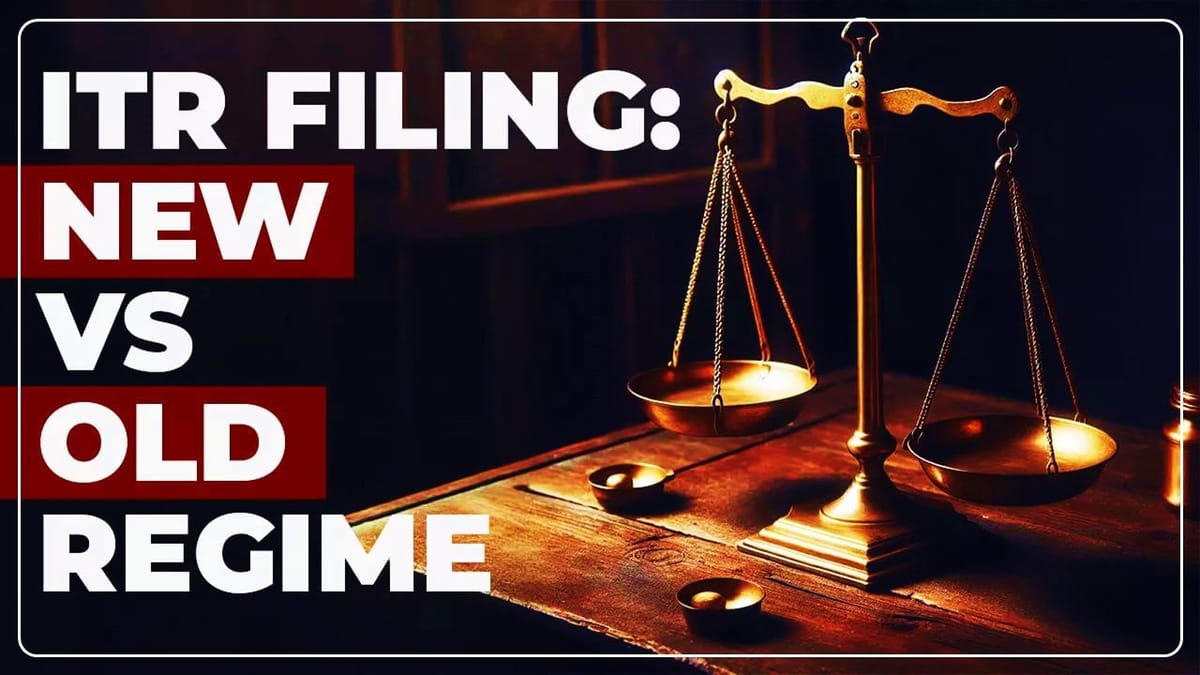It is mandatory to prioritize some important financial tasks while filing an Income Tax Return (ITR).
Anisha Kumari | Jul 22, 2024 |

ITR Filing 2024: New and Old Tax Regimes; Points to Remember When Filing Returns
Running against the time for filing income tax returns before July 31? It is mandatory to prioritize some important financial tasks. Delaying or rushing can lead to issues. For instance, problems and glitches with the ITR e-filing portal or mistakes on your end.
For salaried employees who may have accidentally chosen a new tax regime while filing their investment declarations in April 2023, there’s an extra task for them to deal with. You’ll need to file returns under the old tax regime and claim all eligible deductions.
If you didn’t specify that you wanted to stay with the old tax regime when submitting your investment declarations in April 2023, your employer would have calculated tax based on a new tax regime and deducted TDS accordingly. If you prefer the old regime, make sure to claim the relevant deductions and exemptions under sections like 80C, 80D and 24(b) when filing returns. If too much tax was deducted because your employer used a new regime. You can claim a refund.
Salaried employees can choose a different tax regime than the one selected in their investment declarations. However, those switching from the new tax regime to the old tax regime need to be careful. Ensure you have all necessary documents for deductions claimed. Any queries from the tax department must be addressed. Claiming tax deductions without proper eligibility can lead to tax notices.
The old tax regime offers various tax breaks that reduce your tax liability by encouraging savings. For example, Section 80C allows deductions on investments in Equity-linked Saving Schemes (ELSS), Public Provident Funds (PPF), Senior Citizen Saving Schemes (SCSS), Sukanya Samriddhi Yojana and tax-saver fixed deposits. Home loan principal repayment, Employees’ Provident Fund (EPF) contributions and children’s tuition fees also qualify for deductions under this section. Premiums for Life Insurance Policies and National Pension System (NPS) contributions are eligible for deductions. Section 80CCD(1B) offers an extra deduction of Rs.50000 for NPS contributions. Section 80CCD(2) provides a tax break on employers’ NPS contributions (up to 10% of basic salary and dearness allowance). Section 24(b) provides a deduction of up to Rs.2 lakh on the home loan interest. If your Form-16 doesn’t reflect these deductions. You can still assert them while you are filing the returns to lower your tax liability.
The new tax regime goal is to simplify tax filing by giving lower tax rates and fewer deductions. However, it does provide some exemptions like tax breaks on employers’ NPS contributions up to 10% (14% for government employees) of basic salary and dearness allowance. Both regimes cap tax-free benefits from employers at Rs.7.5 lakh a year. If total tax benefits exceed this cap, the extra amount is treated as taxable income.
Under the new tax regime, you can still claim deductions for home loan interest on rented property. However, the condition that ‘no negative loss from house property’ applies. Interest costs exceeding rental income cannot be set off against other income. You cannot claim home loan interest deduction for self-occupied property under the new regime. This is present under Section 24(b) of the old tax regime. The old tax regime allows this deduction for both self-occupied and rented properties. For rented properties interest paid is deducted from rent received. This is after adjusting for property taxes and a standard deduction of 30%, it determines income from house property and helps to reduce tax payable amount. Losses from house property (interest paid minus rent received) up to Rs.2 lakh can be set off against other income in the same year. Any excess loss can be carried forward for up to eight years.
If you have paid or privileged leave most employers allow you to carry forward any unused leave. You can encash this accumulated leave later. Under the new tax regime, employees will be able to claim tax exemption on leave encashment at resignation or retirement. Government employees enjoy full tax exemption on leave encashment. Non-government employees can claim up to Rs.25 lakh as tax-exempt from April 1, 2023. If you encash leave while still employed the entire amount is taxable for both government and non-government employees under both tax regimes. If an employee dies in service, the entire leave encashment is tax-exempt for their legal heirs.
By understanding and utilizing these deductions, you will be able to reduce your taxable income and save money. Ensure you file your ITR accurately to enjoy these benefits.
In case of any Doubt regarding Membership you can mail us at [email protected]
Join Studycafe's WhatsApp Group or Telegram Channel for Latest Updates on Government Job, Sarkari Naukri, Private Jobs, Income Tax, GST, Companies Act, Judgements and CA, CS, ICWA, and MUCH MORE!"